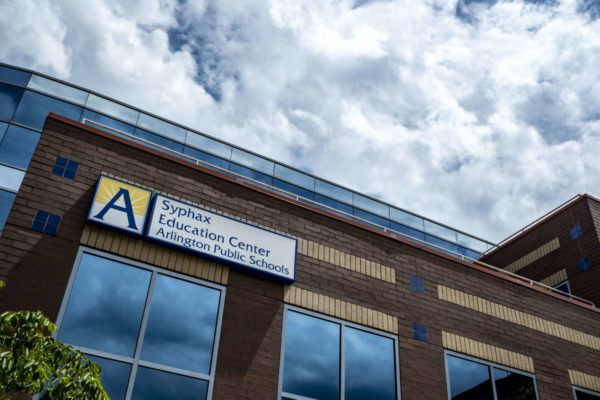The Arlington Branch of the NAACP levied sharp criticisms against the local Democratic party’s School Board endorsement caucus, which is up for debate next week.
On Wednesday at 7 p.m., the Arlington County Democratic Committee is set to consider the objections to its caucus and vote on whether and how to change this process. The vote will be just one month after new leadership took over ACDC.
In Virginia, all School Board races are nonpartisan, meaning parties like Arlington Dems can only endorse candidates, not nominate them as in a primary. But as part of the endorsement caucus, typically held in May, candidates agree not to run in the general election, making the end result similar to a primary.
Or, as the NAACP puts it, the caucus is a “shadow election overriding the democratic and regulated process.”
It argues that, months before the general election, the process influences who runs, how much they spend and how they campaign, who wins and whose votes matter.
“[H]olding a partisan caucus outside the general election schedule leads to voter confusion and thus undermines voter engagement, equitable voter representation, and candidate recruitment,” the group said in a letter to Arlington Dems President Steve Baker.
Part of the problem, the NAACP says, is that voters don’t understand the role of the caucus and will likely just pick the Democrat favored by the caucus when voting down-ballot at the polls.
“The partisan sample ballot and the ‘D’ designation of the endorsed candidate has the effect — in a county so heavily comprised of registered Democrats as Arlington — of rendering the official election in November predetermined by the prior shadow election of the partisan caucus,” the letter said. “Absent reform, the default winner of the proper democratic process always has been and presumably always will be the winner of the endorsement caucus.”
Defenders of the caucus say that’s the point.
“Many County residents lack the time to attend candidate debates or study candidates’ written policy positions and understandably look for a shortcut to winnow the field — the R or the D next to candidate names,” writes resident John Seymour, a precinct captain with Arlington Dems, in Blue Virginia.
Another issue is representation in terms of candidates and turnout, the NAACP says. Voting in the caucus heavily skews toward White Democrats living in North Arlington, meaning candidates with firm northern networks are more likely to run and receive support, according to the letter.
More from the NAACP:
[T]he 22207 zip code was consistently one of the highest represented areas in the caucus process, with almost one-third of the caucus votes (32%) in 2021; however, this zip code comprises only 14% of the total Arlington population and is 79% White. In contrast, the 22204 zip code is the most highly populated in Arlington (23%) and the most diverse (18% Black, 27% Hispanic, and 38% White), but disproportionately made up only 15% of the caucus vote in 2021.
… “If left to the insular implementation, the voting will continue to skew to benefit a specific geographic region in Arlington. It has for all of the years for which we have data and presumably the entirety of the endorsement caucus.”
Still, in recent years, voter participation in the caucus has trended upward, according to ACDC. Last May, 6,207 ballots were cast, exceeding the last county caucus record of 5,972 votes, set in 2017.
Lastly, the NAACP argues the caucus is exclusionary because it effectively bars federal workers — who cannot seek partisan endorsements because of the Hatch Act — from running with any chance of winning. The rule led NAACP member and former School Board candidate Symone Walker to drop out of the caucus and run as an independent.
The NAACP is not the only group criticizing the caucus: self-identified Democrats who want the caucus abandoned include Parent-Teacher Association members and former School Board candidates Symone Walker and Miranda Turner, as well as the board’s newest member, Mary Kadera.
Arlington Parents for Education — a parent group that got its start advocating for open schools during the pandemic, and now focuses on transparency issues — called on ACDC to end the caucus last year.
But defenders of the caucus have largely framed the fight to keep the caucus as a battle to insulate the Arlington School Board from right-wing politics.
Last fall, former ACDC Chair Jill Caiazzo said the caucus is critical to advancing Democratic policy priorities and invoked the “alt-right fracas” in Loudoun School Board meetings over transgender bathroom policies.
The NAACP launched a letter campaign that has 177 letters sent, just shy of goal of 200. The NAACP urged Arlington Dems to consider reforms, but concluded the vote on the future of the caucus will likely be pre-determined in the same way the caucus itself is.
“Those already ‘in the know’ and likely to perceive the caucus as fair to their own interests are by implication the same individuals who know of the vote to continue or suspend its existence and those outside of the insular process will not even know that the vote is happening or how to participate,” the group said.


